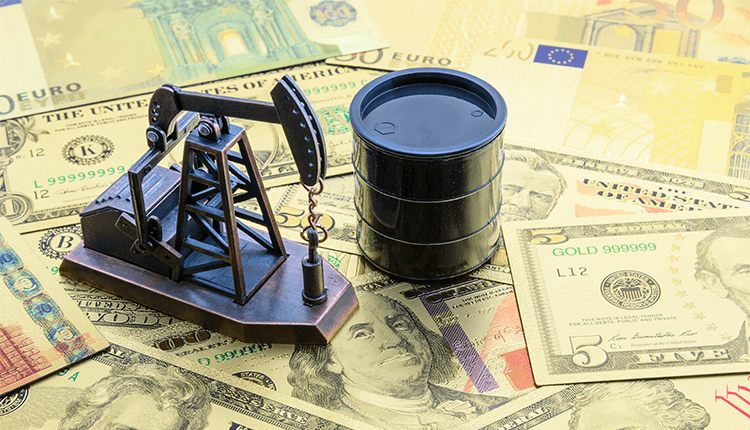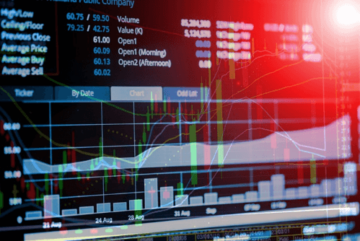In recent days, the world has been closely watching the escalating conflict between Israel and the Islamist group Hamas. As tensions rise in the Middle East, trade oil markets are experiencing a new wave of uncertainty. Brent oil futures have surged past $90 a barrel, marking a significant increase in response to the potential consequences of the Israel-Hamas war. This article explores the current state of oil markets, focusing on the implications of the Israel-Hamas conflict, and the role of key elements like oil tanks, 500 litres of oil, and oil trading platforms in the midst of this evolving crisis.
The Oil Market’s Reaction
Brent oil futures have remained steady above $90 a barrel, capturing the attention of investors worldwide. This surge comes after a substantial 6% increase in both Brent and West Texas Intermediate (WTI) crude prices on Friday. When writing, Brent futures sit at $90.50 a barrel, while WTI crude lingers at $87.43 a barrel. This increase is not merely a coincidence; it is closely tied to the ongoing Israel-Hamas conflict.
The Geopolitical Risk to Oil Markets
The conflict between Israel and Hamas poses one of the most substantial geopolitical risks to the oil market since Russia’s invasion of Ukraine. Investors are concerned about the potential of a wider Middle East conflict and its consequences for global oil supplies. Iran has issued a warning that if Israel’s actions are not halted, the situation could escalate further, potentially involving “far-reaching consequences.” This creates significant uncertainty in the market, making it challenging for investors to predict future developments.
Diplomacy and Geopolitical Developments
Amid these escalating concerns, diplomacy plays a crucial role. U.S. Secretary of State Antony Blinken’s shuttle diplomacy between Arab states and Israel indicates the urgency of addressing the situation. While rumors of a ceasefire in southern Gaza emerged and were later denied, the situation remains highly volatile. Investors are grappling with the impact of the conflict as they await further developments.
China and Russia have also come into the picture. Their foreign ministers met in Beijing to discuss the Israel-Hamas conflict. As major players in the global oil market, the stance and actions of these nations are closely monitored by investors.

The Impact on Oil Trading Platforms
Within this complex geopolitical landscape, oil trading platforms have become instrumental for traders and investors. These platforms enable the buying and selling of oil, serving as key intermediaries between producers and consumers. As the conflict intensifies, the role of oil trading platforms in ensuring a stable supply of oil becomes even more critical. Traders need efficient and reliable platforms to navigate the turbulent market and execute transactions with confidence.
The Challenge of Supply Disruptions
The uncertainty stemming from the Israel-Hamas conflict compounds existing challenges in the oil market. The United States recently imposed sanctions on the owners of tankers carrying Russian oil, aiming to close loopholes in the mechanism designed to punish Moscow for its invasion of Ukraine. As one of the world’s leading crude exporters, Russia’s oil supply is crucial to the global market. The tighter U.S. scrutiny of its shipments has the potential to disrupt supply chains, leading to increased volatility in oil prices.
Moreover, payment issues have arisen in the oil trade. The Indian government’s reluctance to allow state-controlled refiners to pay for Russian oil imports with Chinese currency has caused delays in payments for several cargoes. Despite this issue, deliveries have continued, as Russian firms such as Rosneft strive to meet the demand of Indian refiners. These challenges in settling oil trade not only affect the Indian market but also highlight the broader impacts of geopolitical conflicts on global oil transactions.
Russia anticipates an upcoming visit from Venezuelan President Nicolas Maduro, a significant step in strengthening the collaboration between these two major oil-producing nations. This visit holds strategic importance as Russian companies express a keen interest in expanding their investments within the South American country, a move likely to further cement their partnership. President Vladimir Putin’s key figure in the oil industry made this announcement on Monday, emphasizing the growing ties between the two nations.
Geopolitical Uncertainty: Israel-Hamas Conflict’s Impact on Global Oil Markets
The Israel-Hamas conflict presents a substantial geopolitical risk to global oil markets. The surge in oil prices above $90 a barrel underscores the nervousness of investors and the profound impact of the ongoing crisis. The role of oil trading platforms, the threat of supply disruptions, and payment challenges are all factors that add complexity to an already volatile market. As the situation evolves, the world watches with bated breath, hoping for a peaceful resolution that will stabilize not only the oil markets but also the broader geopolitical landscape.
- SEO Powered Content & PR Distribution. Get Amplified Today.
- PlatoData.Network Vertical Generative Ai. Empower Yourself. Access Here.
- PlatoAiStream. Web3 Intelligence. Knowledge Amplified. Access Here.
- PlatoESG. Carbon, CleanTech, Energy, Environment, Solar, Waste Management. Access Here.
- PlatoHealth. Biotech and Clinical Trials Intelligence. Access Here.
- Source: https://www.financebrokerage.com/oil-prices-remain-stable-above-90/
- :has
- :is
- :not
- 50
- 500
- a
- About
- above
- actions
- add
- addressing
- affect
- After
- Aiming
- All
- allow
- already
- also
- American
- an
- and
- Announcement
- anticipates
- Arab
- Arabian
- ARE
- article
- AS
- At
- attention
- await
- become
- becomes
- been
- Beijing
- between
- both
- Breath
- brent
- broader
- brokerage
- but
- Buying
- by
- Capturing
- carrying
- caused
- chains
- challenge
- challenges
- challenging
- chinese
- Close
- closely
- coincidence
- collaboration
- come
- comes
- Companies
- complex
- complexity
- Concern
- concerned
- Concerns
- confidence
- conflict
- conflicts
- Consequences
- Consumers
- continued
- could
- country
- creates
- crisis
- critical
- crucial
- crude
- Currency
- Current
- Current state
- Days
- delays
- Deliveries
- Demand
- denied
- designed
- Despite
- developments
- Diplomacy
- discuss
- Disrupt
- disruptions
- East
- efficient
- elements
- emerged
- emphasizing
- enable
- ensuring
- escalate
- Even
- evolves
- evolving
- execute
- existing
- expanding
- experiencing
- explores
- express
- factors
- Figure
- finance
- firms
- focusing
- For
- For Investors
- foreign
- Friday
- from
- further
- future
- future developments
- Futures
- geopolitical
- Global
- global market
- grappling
- Group
- Growing
- Have
- Highlight
- highly
- holds
- hoping
- HTTPS
- if
- Impact
- Impacts
- implications
- importance
- imports
- imposed
- in
- Increase
- increased
- Indian
- indicates
- industry
- instrumental
- Intensifies
- interest
- intermediaries
- Intermediate
- into
- invasion
- Investments
- Investors
- involving
- Iran
- Israel
- issue
- Issued
- issues
- IT
- ITS
- Keen
- Key
- landscape
- later
- leading
- like
- likely
- loopholes
- made
- Maduro
- major
- Making
- Market
- Markets
- marking
- mechanism
- Meet
- merely
- met
- Middle
- Middle East
- ministers
- Monday
- monitored
- more
- Moscow
- most
- move
- Nations
- Navigate
- Need
- New
- Nicolas
- Nicolas Maduro
- of
- Oil
- oil markets
- on
- ONE
- ongoing
- only
- over
- owners
- Partnership
- past
- Pay
- payment
- payments
- picture
- Platforms
- plato
- Plato Data Intelligence
- PlatoData
- players
- plays
- poses
- potential
- potentially
- predict
- presents
- president
- Prices
- Producers
- profound
- recent
- recently
- reliable
- reluctance
- remain
- remained
- remains
- Resolution
- response
- Rise
- Risk
- risks
- Role
- Rumors
- Russia
- russian
- Russian oil
- s
- Sanctions
- Saudi
- scrutiny
- secretary
- Selling
- serving
- settling
- several
- significant
- since
- sit
- situation
- South
- Southern
- stabilize
- stable
- stance
- State
- States
- steady
- Step
- Strategic
- strengthening
- strive
- substantial
- such
- supply
- Supply chains
- surge
- Surged
- Tanks
- tensions
- texas
- that
- The
- the world
- their
- These
- they
- this
- threat
- Tied
- Ties
- tighter
- to
- trade
- Traders
- Trading
- Trading Platforms
- Transactions
- turbulent
- two
- u.s.
- Ukraine
- Uncertainty
- underscores
- United
- United States
- upcoming
- urgency
- Venezuelan president
- Visit
- volatile
- Volatility
- war
- warning
- watches
- watching
- Wave
- were
- West
- when
- while
- wider
- will
- with
- within
- world
- world’s
- worldwide
- writing
- WTI
- WTI Crude
- zephyrnet












